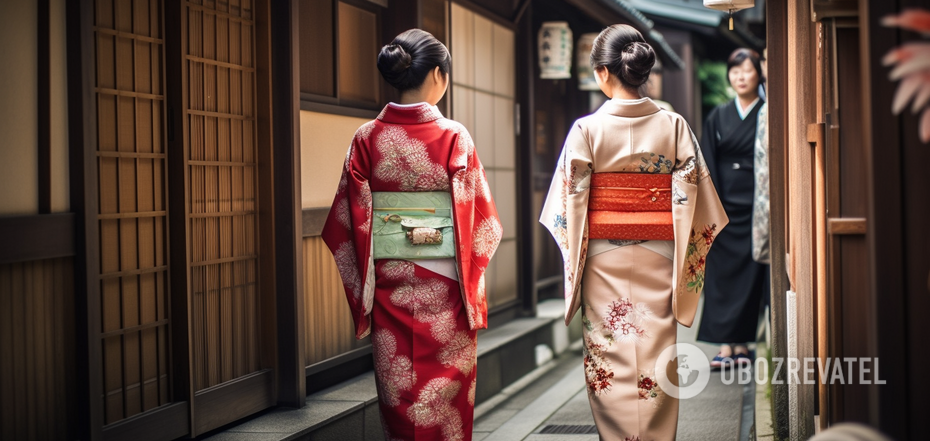Life
How to start living better: Japanese habits that will turn your world upside down forever
Japan is rightly considered the land of the long-livers. And many researchers are trying to unlock the secrets of its inhabitants. The key to longevity is sought, in particular, in their daily habits.
Japanese author Masaki Ishiguro presented his observations in the book "25 Japanese habits for a better life". OBOZREVATEL tells about 10 basic ones that you can easily integrate into your life right now.
Have a goal
In Japan, there is a philosophical concept called ikigai. It means a sense of purpose in life and takes many forms, such as a hobby, a favorite job, or a family. Ikigai focuses on the little things in which you are most successful and which give you pleasure and positively influence your life and even the lives of those around you. It could be cooking delicious meals, making and spending money, constantly improving your home - anything. So find your kigai and enjoy it.
Improve yourself every day
The Japanese use the principle of kaizen in their work. This word can be translated as "striving for continuous improvement". The people of the country are constantly improving processes, management and product quality. They also apply this principle in their daily lives. In doing so, they view the process of improvement as a continuous journey with small steps. Make small improvements in your space, personality, activities, skills every day and you will soon notice huge changes.
Take care of your resources
The Japanese firmly believe that effective utilization of tangible and intangible assets is crucial to achieving goals. That is why it is so important to value what you have, to treat your possessions with care, to consume rationally, and to waste nothing. Use your space wisely, fill your life with only what you need, and don't waste your time and your talents.
Take care of your energy
The eastern philosophy of feng shui is based on the principles of proper distribution of vital chi energy. The inhabitants of Japan practice this approach in all areas of life. The environment is formed so that it evokes a sense of harmony and peace, was comfortable, improved the mood, and not depressing. This helps to keep the level of one's internal energy high enough.
Pay attention to detail
Traditional Japanese art forms such as origami, ikebana or bonsai involve a great deal of attention to detail. Every little detail is important - fold the paper a millimeter in the wrong place and the figure will not turn out, cut the plant wrongly and it will not grow miniature, or even die. As later studies have found out, such concentration on small things helps to keep the brain healthy and young.
Always look for quality
Hotels and restaurants in Japan operate on the principle of omotenashi. This is a philosophy of hospitality that says to treat the client as a personal guest, to put him a little above yourself and to make sure that he is completely satisfied. It is important not to expect gratitude, but to do everything from the heart, from the desire to make another person happy. This attitude to oneself and others and in everyday life has a very good effect on the emotional state of any person.
Find beauty in everything
The Japanese are famous for their deep understanding of the aesthetics of the world around them and are guided in their perception of it by special principles: wabi - enjoyment of simplicity, sabi - admiration of antiquity, traces of time, yugen - concentration on the sensation of contemplating beauty, yabo - enjoyment of the natural, rough, unprocessed and others. The essence of the Japanese approach to aesthetics is to seek and find beauty in everything and to rejoice in it.
Accept life as it is
The principle of calmly accepting what cannot be changed is deeply rooted in Japanese culture. This allows you to avoid wasting potential on unnecessary worry, frustration and suffering. This frees up energy for creativity and contemplation of beauty.
Communicate with nature
The Japanese philosophy of shinrin-yoku (translated as "forest bathing" or "forest bathing") is to immerse oneself in the atmosphere of pristine nature. Residents get out into the forest, on the shores of bodies of water and other natural places solely to observe them, rather than using them as recreation grounds. Studies show that this reduces stress levels, improves mood and increases concentration levels. The key is not to be distracted by gadgets, but to be fully engaged in the process.
Live with passion
The Japanese are passionate about everything they do. Anything you do should be emotionally rewarding, because indifference is bad for your general well-being and internal energy level.
Earlier OBOZREVATEL told about the Japanese way to calm down before going to bed.
Subscribe to OBOZREVATEL channels in Telegram, Viber and Threads to keep up to date.



























